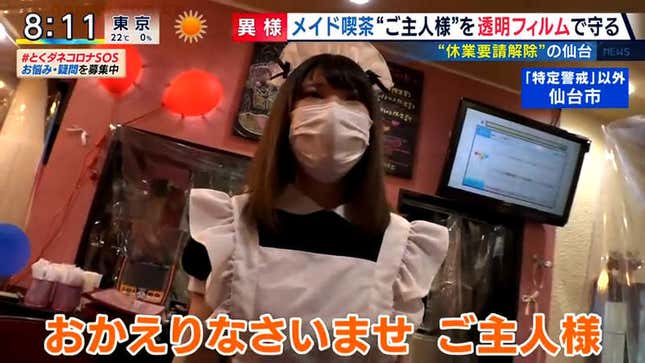
A state of emergency was declared in Japan due to the novel coronavirus pandemic. Many people have stayed home, and businesses were temporarily closed. The whole world has been affected and changed by the virus. What does that mean for Japanese otaku culture?
So much of this culture centers around people congregating in geek centers like Tokyo’s Akihabara or Osaka’s Den Den Town, going to anime and video game cons, squeezing into cramped concert halls to watch idol shows, and grabbing a bite to eat at maid cafes. Due to covid-19, this year’s biggest conventions, whether that’s Comiket or the Tokyo Game Show, are being canceled one by one. Earlier today, it was announced that the country’s largest figure event, Wonder Festival, won’t be held this year.
Since many of the early cases of the novel coronavirus spread through musical venues, it feels unlikely that those will reopen any time soon. However, the musical group Enatsu no tatari recently introduced transparent boxes that could be used in live performances.
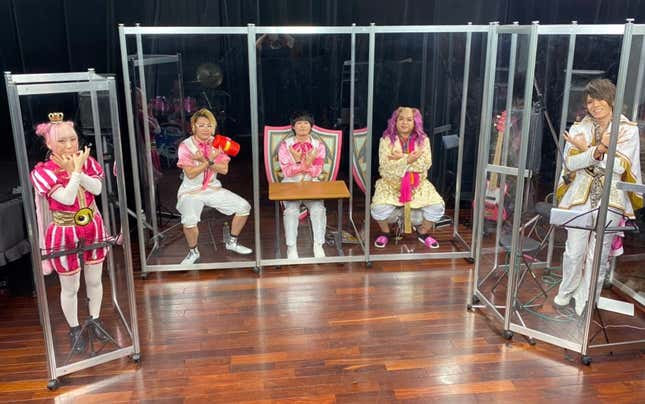
I guess these would protect the performers, but some other workaround would be needed to ensure the crowd’s safety.
Arcades have also had a difficult time. Independent game center Mikado in Tokyo received massive support through crowdfunding as many customers stay away, due to coronavirus concerns.
Even though everyone has been staying at home, that doesn’t mean home consoles won’t be impacted as well. Nintendo recently stated that the pandemic could alter game development and retail sales.
This driving simulator arcade has installed plastic sheets between the cabinets.
But even given the state of emergency declaration, some electronic stores in Akihabara are currently open.
However, other parts of the area have remained closed.
Depending on when and where you go, the otaku hub has looked like a ghost town.
New precautions are being instituted, giving us a look a life outside during the covid-19 era.
At Yodobashi Camera in Akihabara, one of the largest electronics stores in Tokyo, customers are being advised on how they should stand in elevators.
Some maid cafes, but not all, are open and are also trying to take precautions. Last month, the Japanese press showed how maid cafes were attempting to protect customers and maids from spreading the novel coronavirus. Now, many of them imposing stricter measures.
As the state of emergency was extended into this month, some popular maid cafes in Tokyo’s Akihabara temporarily shut their doors or offered takeout meals (made by maids). Maidreamin didn’t only temporarily shutter, but also streamed clips of staff doing things like making rice omelets.
Others asked customers to sanitize their hands and had staff don masks, disinfect surfaces, and install plastic sheets to create some kind of barrier.
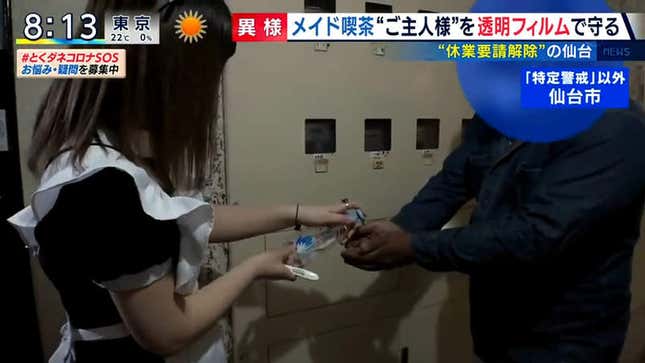
Some cafes are just starting to reopen with reduced hours.
Maid cafes can be cramped spaces, so hopefully, none of the employees or customers get ill.
Toku Dane, one of Japan’s most popular morning shows, profiled a maid cafe called Strawberry that reopened in Sendai. The cafe has erected plastic sheets throughout, separating each customer.
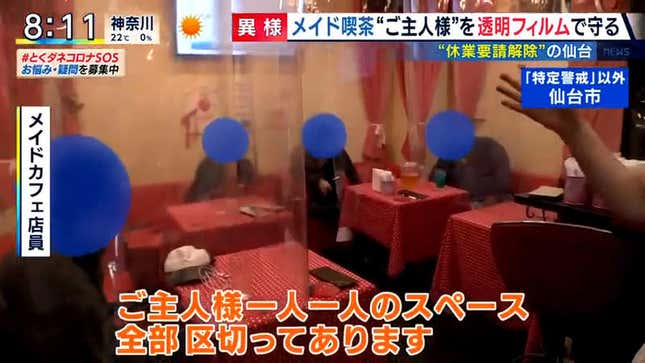
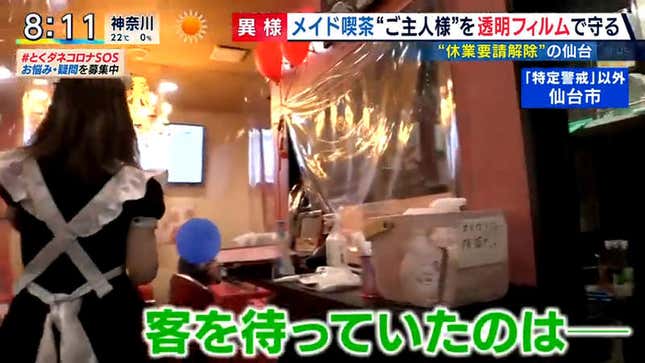
Below you can compare how the cafe looked previously to how it looks now.
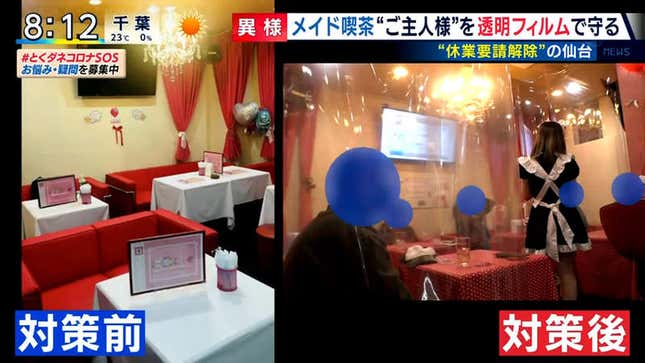
Strawberry has lost 80 percent of its business and launched a crowdfunding page to keep the maids employed.
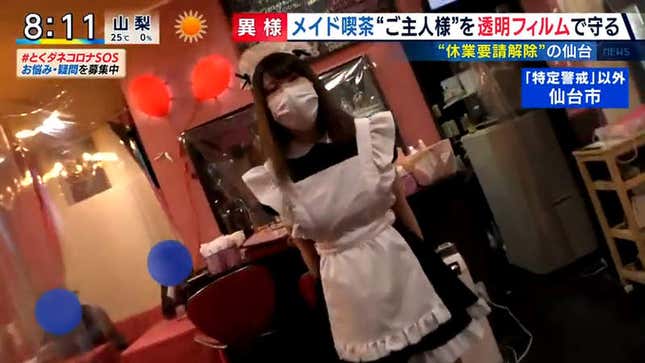
The Japanese government is lifting the state of emergency in most prefectures but is keeping it in place for areas, like Tokyo and Osaka, with a higher infection rate.
It remains to be seen whether customers will return in large numbers or if the relaxing of social distancing and new precautions can avoid another wave of infections. What’s more, how many of these changes will remain once the pandemic is over?